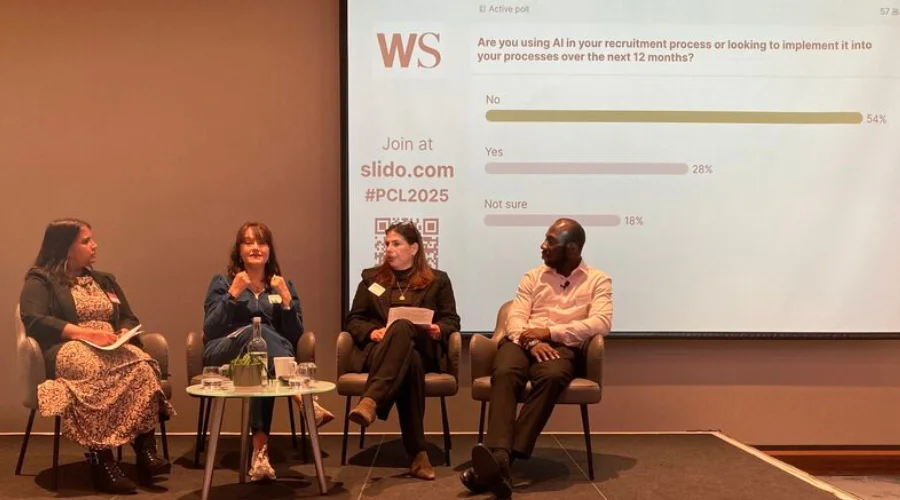
Quick CV Dropoff
Want to hear about the latest non-profit and public sector opportunities as soon as they become available? Upload your CV below and a member of our team will be in touch.

Over the years, we're really proud to say we've helped a large number of people find their first Trustee position.
We know you may be unsure about what is involved and how to become a Trustee, so we've compiled some frequently asked questions below.
Of course, nothing beats speaking to us, so if you're interested in joining a charity Board, please do get in touch – we're here to support you. Call Lisa, or Matt on 020 7198 6060 or email us at executive@tpp.co.uk to arrange a time.
For most people, this is an opportunity to 'give back' to a cause you have an affinity with - it's a highly rewarding role, one where you'll benefit both personally and professionally.
Charity Trustees are often called 'The Board,' and they make key joint decisions about the direction of the charity and how it's going to deliver it – in a nutshell, they make sure that the charity is run effectively.
Trustees are individually responsible for the charity's governance, making sure it complies with the law and the policies, fulfills its objectives, and stays accountable to users. In effect, this boils down to trustees having six duties:
Another excellent information resource to read is the Charity Commission guide and NCVO (an organisation who champion the voluntary sector and volunteering).
The answer is simply anyone - as long as you have time and passion!
A charity Board will want to reflect the communities it serves and are always keen to have people with 'lived experience' around the table who have an affinity with their mission. A diverse group of Trustees on a board with different perspectives are more attuned to issues and therefore allow for better decision making (Lived experience on non-profit boards). Very often they will provide a 'Buddy' or offer training to support new members.
There are some cases when a charity has completed a skills audit and have identified a need for support from a specific skillset e.g. marketing, governance, or EDI (Look to the future: Skills Audit).
As well as giving us a ring(!) there are lots of courses to attend, some free, some paid, as well as information hubs where you can listen to other trustees talking through their roles and read various guides – here are just a few:
It does vary from charity to charity, typically it's 1-2 days a month, and it will vary from month to month (when preparing for the Board meeting). Board meetings are normally held between 4-6 times a year and usually last half a day (although every charity will be different, so do check). It is becoming increasingly common for charities to be open to their Trustees attending meetings either in person or remotely, but again you are advised to check to ensure that you can attend these meetings. In addition, you may be required to sit on a specific advisory group or sub-committee that will look after a specific area. Common examples of sub-committees are finance and audit, nominations, and equality, diversity, and inclusion.
Trustee roles are voluntary, but most charities will cover reasonable expenses, e.g., the cost of travel or cover caring costs (this will be outlined at the beginning).
TPP Recruitment advertises Trustee jobs on various job sites (below), including our website, and if you register, you can set up job alerts to let you know when new vacancies are added. We can also have a conversation with you to discuss the types of opportunities and organisations you would be interested in becoming a Trustee for and where your skills might be best suited to.
Trustee vacancies are generally advertised on sector job boards CharityJob, Guardian, Third Sector, Evenbreak, Young Trustee Movement, Reach Volunteering, and on the websites of the charities themselves. You can also indicate you are interested in volunteer vacancies on your 'career interests' page on LinkedIn or under the 'volunteer experience' section of your profile.
If you see a Trustee position we're advertising, please give us a call or email or click on the advert link, and we'll send you out further information – usually in the form of a candidate pack. This will give you information on the charity's mission/strategy, the role requirements/person specification, recruitment timetable, and details of how to apply. Most of the time, we require an up-to-date CV and a supporting statement that outlines why you're interested in the role and relevant skills/experience. Read our blog for tips: Supporting statements for Trustees
After you've sent an application in, we will review it against the criteria and invite you to attend a preliminary interview with ourselves. We will then submit your application with an overview to the charity. The charity's Nomination Committee (members of the current board who are managing the recruitment) will then select who they'd like to interview. At this stage, they may well offer you to have a pre-chat with the CEO or current Chair to help you with your preparation.
For the interview, the best advice we can give is to prepare the same way as if you would a paid role. Do your research, look at the website and The Charity Commission for the charity's annual report and search online for any news. Be ready to give examples of relevant experience, where you feel you can add value and your motivation for wanting to join them. Read our blog: Trustee Interview Guide for more advice and typical questions.
If you would like to discuss this further and find out how we can assist you in finding your first Trusteeship, please get in touch with Lisa or Matt on 020 7198 6060 or executive@tpp.co.uk.